Best Shoes for Nurses with Plantar Fasciitis: Top Picks for Comfort and Support
Nurses stand on the front lines of healthcare, dedicating long hours to patient care which often requires them to be on their feet for extended periods. This reality places them at a higher risk for developing foot conditions like plantar fasciitis, a common ailment that causes heel pain due to inflammation of the plantar fascia. The right footwear can make a significant difference, offering relief and support to those experiencing discomfort.
Selecting the best shoes for nurses with plantar fasciitis goes beyond style and brand preference. It involves understanding the specific features that provide the necessary support and cushioning. Factors such as arch support, heel cushioning, and the right fit are crucial in alleviating pain and preventing further injury. Moreover, for nurses with plantar fasciitis, wearing shoes that accommodate orthotic insoles or provide ample room in the toe box can be particularly beneficial.
Key Takeaways
- Proper footwear is essential for nurses with plantar fasciitis to reduce pain and support long shifts.
- Shoes designed for plantar fasciitis should have features like arch support and heel cushioning.
- The fit and accommodation for orthotics play a vital role in selecting the right nursing shoes.
Understanding Plantar Fasciitis
Plantar fasciitis is a common condition affecting the foot’s plantar fascia, a thick band of tissue that connects the heel bone to the toes. It serves as a shock absorber and supports the foot’s arch. When strained, the plantar fascia becomes inflamed, causing heel pain and stiffness, typically worse with the first steps after waking up or after long periods of standing.
Symptoms
- Sharp heel pain
- Stiffness
- Pain that increases after inactivity
The condition is particularly prevalent among nurses due to their extended periods of standing and walking during shifts. Factors that may increase their risk include:
- Excessive weight
- Foot structure (flat feet or high arches)
- Non-supportive footwear
Diagnosis
Diagnosis involves a physical examination of the foot and discussions regarding activity levels and pain patterns. In some cases, imaging tests like X-rays are used to rule out other causes.
Treatment
Treatment emphasizes pain relief and inflammation reduction. Options include:
- Rest
- Ice
- Anti-inflammatory medications
- Stretching exercises
- Supportive footwear
For nurses coping with plantar fasciitis, it is crucial to choose shoes offering ample support. Features such as removable arch support, antimicrobial materials, and cushioning can help manage symptoms and provide comfort during long hours on duty. Custom orthotics are also an option for tailored support and relief.

Key Features of Shoes for Plantar Fasciitis
When looking for shoes to help with plantar fasciitis, certain features are essential for providing relief and support. Nurses with plantar fasciitis should focus on the following key characteristics:
- Arch Support: Adequate arch support is paramount. Different individuals require varying levels of support, so shoes with customizable or removable arch support can accommodate a range of needs.
- Heel Cushioning: Good heel cushioning absorbs shock, alleviating pressure on the plantar fascia. Reduced impact during long hours of standing and walking is critical for comfort.
- Deep Heel Cups: Shoes featuring deep heel cups help stabilize the heel and distribute pressure more evenly.
Here is an example list of features to look for in shoes:
- Wide Toe Box: Provides ample room for the toes, reducing pressure and allowing for natural foot movement.
- Supportive Sole: A sole with a slight rocker design can help reduce fatigue by facilitating the foot’s natural rolling motion.
- High-quality Materials: Durable, high-quality materials that offer good ventilation and maintain foot hygiene are ideal.
- Adjustable Fitting: Features such as a two-way lacing system or adjustable straps can lead to a more customized and snug fit.
Selecting shoes with these features can help nurses with plantar fasciitis find comfort and support during their demanding workdays. Each feature contributes to the reduction of strain on the foot, which is crucial for managing this condition.
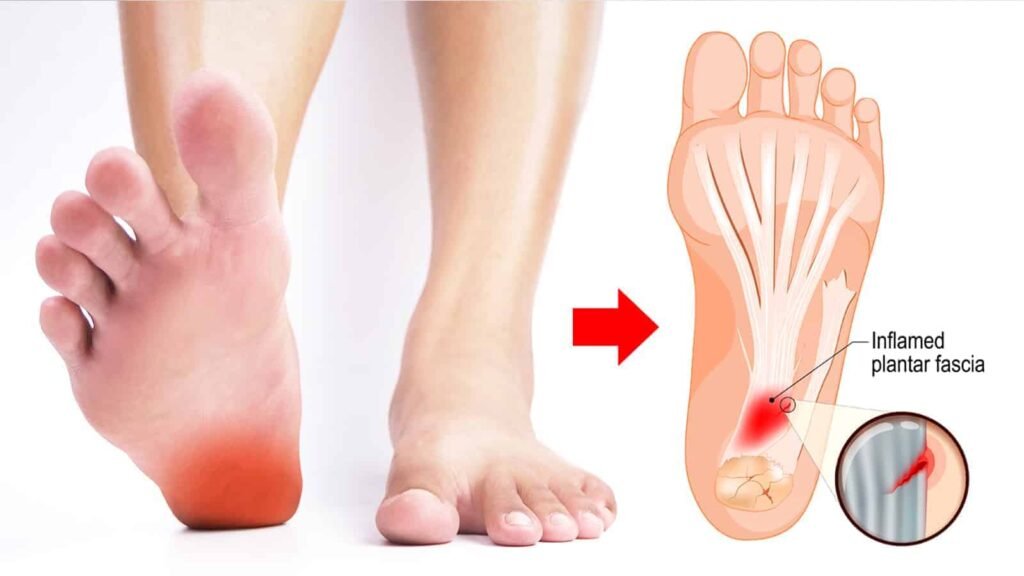
Top Shoe Brands for Nurses with Plantar Fasciitis
Choosing the right footwear is crucial for nurses managing plantar fasciitis, and several brands offer designs to provide the needed support and comfort.
Brand Overview
Among the top brands, Hoka and Kuru stand out for their innovative approaches to foot health. Hoka shoes, such as the Hoka Bondi 8, are lauded for their cushioning and stability. Kuru shoes are specifically designed to alleviate the discomfort associated with plantar fasciitis; the Kuru Quantum is esteemed for its ample support.
Model Comparisons
When comparing models, the Gravity Defyer Women’s Shoes offer a patented spring system for shock absorption. Meanwhile, the Nurses Mates Women’s Dove Oxford is a stylish leather shoe with a reputation for being easy to clean, an essential feature for the healthcare environment.
Price Considerations
Prices for nursing shoes suitable for those with plantar fasciitis range markedly. Hoka models are typically in the higher price bracket, reflecting their advanced cushioning technologies. Conversely, Nurses Mates often provides more budget-friendly options without sacrificing comfort or style.
Factors to Consider When Choosing Shoes
When selecting shoes for nurses with plantar fasciitis, it is essential to focus on features that offer arch support, cushioning, comfort, and durability. These aspects can significantly impact the wearer’s daily experience and overall foot health.
Arch Support
Shoes selected must provide adequate arch support tailored to the individual’s foot contour. A removable arch support option is beneficial for customization to the nurse’s specific arch type, whether it is flat, normal, or high.
Cushioning Level
The right cushioning level can help absorb impact and distribute pressure evenly across the foot. Look for features like heel cushioning, which can assist in reducing stress on the plantar fascia.
Fit and Comfort
Fit and comfort are paramount. Shoes should fit snugly without causing pressure points. A wide toe box allows for natural toe spread, while adjustable straps or laces can enhance fit personalization, ensuring long-lasting comfort during shifts.
Durability
Lastly, nurses need shoes that offer robust durability. The materials should withstand the rigorous demands of the healthcare environment while maintaining their supportive properties over time.
The Role of Orthotic Insoles
Orthotic insoles serve a critical function for nurses combating plantar fasciitis. They are designed to provide customized arch support, which is beneficial for alleviating the heel pain commonly associated with this condition. By properly aligning the foot, orthotics evenly distribute body weight and reduce the strain on the plantar fascia ligament during long shifts.

Insoles may come with features such as a deep heel cup and extra cushioning, both of which help in absorbing impact and offering stability. These characteristics are especially important for nurses, as they spend a significant amount of time on their feet.
| Key Features of Orthotic Insoles | Benefits for Nurses |
|---|---|
| Customizable Arch Support | Alleviates strain on the arch |
| Deep Heel Cup | Stabilizes and supports heel |
| Extra Cushioning | Reduces impact on feet |
| Moisture-Wicking Material | Keeps feet dry and comfortable |
Furthermore, many orthotic insoles are made with antimicrobial materials to maintain foot hygiene, which is imperative in a healthcare setting. For nurses with specific needs, some insoles are even customizable for a more precise fit.
Investing in high-quality orthotic insoles can be a prudent decision for nurses with plantar fasciitis, as they are instrumental in reducing pain and enhancing comfort during those demanding shifts. Consulting with a podiatrist for personalized recommendations is always a prudent approach.
Caring for Shoes to Alleviate Plantar Fasciitis
Proper maintenance of footwear is crucial for nurses dealing with plantar fasciitis. Well-care for shoes can significantly impact comfort and foot support during long shifts.
Routine Inspection
Users should regularly check their shoes for signs of wear, especially in the midsole area. A nurse’s weight and walking style can lead to uneven wear patterns, which might exacerbate plantar fasciitis.
- Rotation: Alternating between two pairs of shoes ensures that each pair has time to decompress and return to its original shape, maintaining cushioning and support.
Cleaning
Keeping shoes clean reduces the risk of microbial growth, which can lead to shoe degradation and an unpleasant environment for feet.
- Materials: Use a soft brush and a mild detergent for regular cleaning.
- Frequency: Clean shoes as they become soiled, but also air them out regularly to prevent moisture build-up.
Inserts and Orthotics
Specialized inserts can offer additional arch support and distribute pressure evenly across the foot.
- Customizable: Inserts such as those found in shoes designed for nurses with plantar fasciitis can often be removed and replaced when they start to lose their supportive properties.
Storage
Store shoes in a cool, dry place to prevent the materials from breaking down. Avoid direct sunlight or extreme temperatures that may warp the shape of the shoes.
- Breathability: Shoes should have access to air flow while in storage to maintain their shape and freshness.
Lacing Techniques
Tightening laces can provide better support and reduce strain on the plantar fascia.
- Personalization: Experimentation with different lacing techniques can help nurses find the most supportive and comfortable fit for their feet.
Through conscientious care and maintenance, nurses can extend the life and enhance the therapeutic benefits of their footwear, thus helping to alleviate the symptoms of plantar fasciitis.
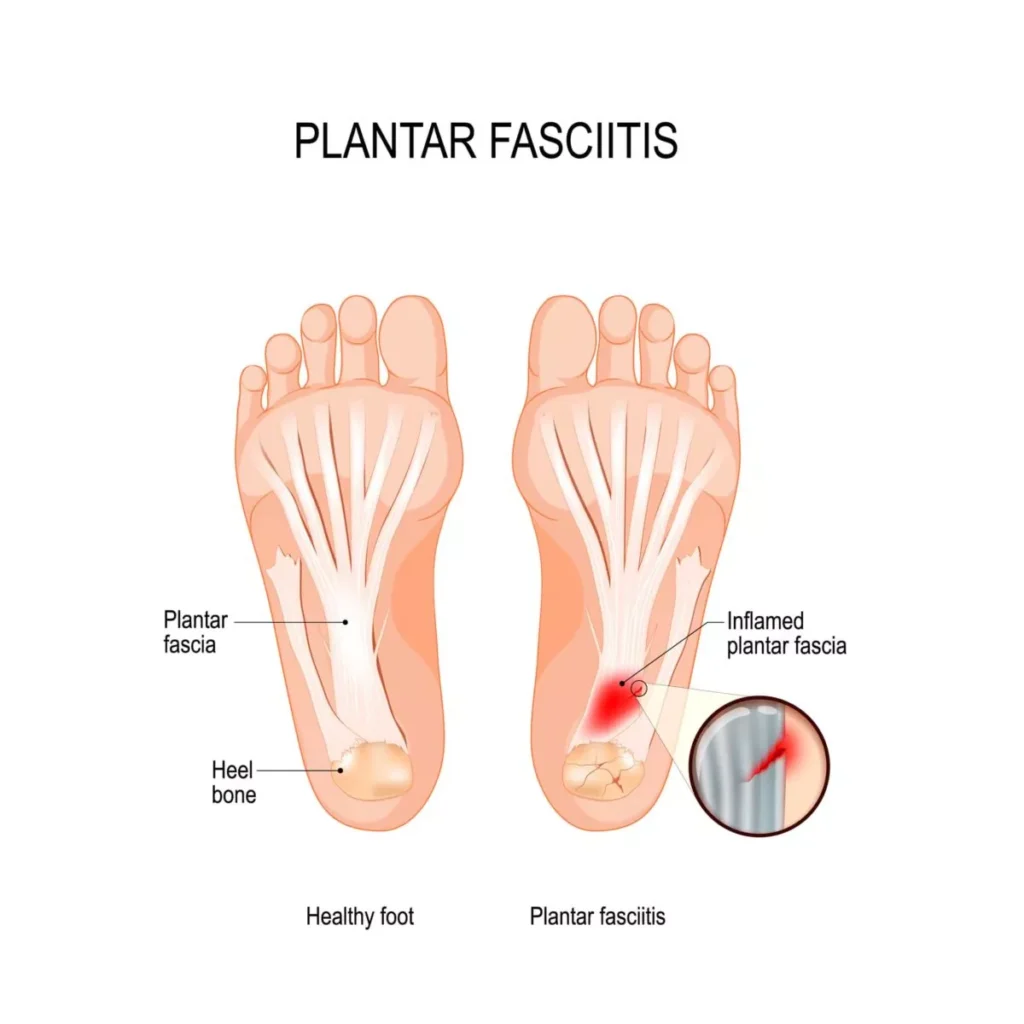
Professional Recommendations on Footwear
When choosing the best shoes for nurses with plantar fasciitis, healthcare professionals emphasize the importance of proper support and cushioning. Shoes with a strong arch support can help distribute pressure evenly across the foot, which is crucial for nurses who spend long hours on their feet.
Experts advise looking for shoes boasting good heel support to alleviate the strain on the plantar fascia. Features such as a deep heel cup can provide stability, helping to prevent the sharp heel pain associated with plantar fasciitis.
It’s also important for nurses to consider footwear that offers adequate cushioning. This can absorb impact and offer relief during long shifts. A shoe with a thick, soft sole may reduce stress on the foot’s arch.
Additionally, healthcare professionals recommend shoes with proper posture support to assist with body alignment, which can indirectly benefit foot health.
Here is a summarized list of recommended features:
- Arch support
- Heel cushioning
- Shock absorption
- Posture support
Examples of recommended shoes include the Hoka Bondi 8, noted for its significant cushioning, and the orthotic Orthofeet Plantar Fasciitis sneakers, designed specifically for foot comfort and support for nurses.
In conclusion, nurses should prioritize these footwear characteristics when shopping, ensuring their selection offers a blend of comfort and support to manage symptoms of plantar fasciitis effectively. For further guidance, nurses may consider feedback from peers or seek advice from healthcare providers who specialize in foot care.
Impact of Walking Patterns on Plantar Fasciitis
Walking patterns play a significant role in the development and management of plantar fasciitis, a common condition causing heel pain. Excessive pronation, where the foot rolls inward during walking, places extra stress on the plantar fascia. This can lead to inflammation and pain. On the other hand, supination, with outward rolling of the foot, can also contribute to plantar fasciitis by failing to absorb the impact effectively, again stressing the plantar fascia.
Proper gait mechanics ensure an even distribution of weight across the foot. Nurses must often walk substantial distances during their shifts, so aberrant walking patterns can exacerbate plantar fasciitis symptoms over time. Heel strike and toe-off phases should be smooth transitions to minimize the strain on the plantar fascia.
It’s crucial to identify any abnormalities in walking patterns early on to manage plantar fasciitis effectively. Supportive footwear is a key factor in correcting poor walking patterns. Shoes that provide proper arch support and cushioning can help distribute pressure evenly through the foot and allow for a more natural gait cycle.
Key Considerations for Footwear:
- Arch support: Customizable or removable to accommodate individual foot structures.
- Cushioning: Adequate heel cushioning to absorb shock.
- Fit: Shoes with a wide toe box can prevent excessive pressure on the toes and front of the foot.
Nurses with plantar fasciitis should choose shoes designed to address their specific walking patterns to prevent further injury and to alleviate pain. Shoes for nurses with plantar fasciitis often include features like high arch support and heel cushioning which are essential in promoting a healthy walking gait and minimizing stress on the plantar fascia.
Shoe Reviews and Testimonials
When selecting the best shoes for nurses who suffer from plantar fasciitis, testimonials and reviews are a valuable resource for understanding the performance and effectiveness of the footwear.
- Gravity Defyer Women’s Shoes are often praised for their patented spring system which aids in shock absorption. Nurses appreciate the removable insoles that allow for custom orthotics and the built-in arch support which together provide relief from plantar fasciitis symptoms. Their stylish design also receives compliments for being suitable for both professional and casual wear. (The 11+ Best Shoes for Nurses with Plantar Fasciitis (2023))
- Clove Nursing Shoes stand out for their support. Reviews highlight features like antimicrobial and moisture-wicking material, as well as heel cushioning and a spacious toe box. These elements contribute to the shoes’ functionality and comfort for long shifts on the move. (The 9 Best Shoes for Nurses of 2023, Tested and Reviewed – Verywell Health)
- The Orthofeet Plantar Fasciitis Orthopedic Shoes have garnered attention for their unique lacing system and adjustable straps, offering a tailor-made fit. Many testimonials underscore how this design maximizes comfort across not just the feet, but also the knees and lower back during prolonged periods of standing or walking. (What are the Best Shoes for Nurses With Plantar Fasciitis? (our top 8 …))
Each brand brings a different set of benefits to the table, and individual preferences play a significant role in determining the best fit. Nurses looking for relief from plantar fasciitis should consider these highlighted features when making their selection.
Where to Purchase Shoes for Plantar Fasciitis
Finding the right shoes for plantar fasciitis is critical for nurses. Specialty footwear retailers often carry a broad selection of shoes designed for medical professionals that provide the necessary support and comfort. Many of these retailers have both physical locations and online stores, allowing nurses to shop according to their convenience.
When shopping online, it’s important for nurses to look for retailers that have flexible return policies, as the fit and comfort are essential when selecting the best shoes for plantar fasciitis. Retailers like Verywell Health have tested and reviewed shoes for nurses, taking into account various factors like support and foot flexion that are crucial for those with plantar fasciitis.
Recommended Retailers:
- Specialty Physical Stores: These stores provide the benefit of trying on shoes to ensure proper fit.
- Online Footwear Sites: Vendors such as Sports Illustrated list options with a focus on important features such as support for nurses with back pain.
- Direct Brand Outlets: Buying directly from the brands like Orthofeet can provide access to the latest shoe technology for managing plantar fasciitis.
Key Shopping Tips:
- Measurements: Nurses should have updated measurements of their feet, as shoe size can change over time.
- Reviews: They should consider reviews from other healthcare professionals dealing with plantar fasciitis.
- Quality Brands: Opting for well-known brands specializing in orthopedic footwear can assure quality and effectiveness.
Hospitals and clinics sometimes partner with shoe manufacturers, offering their staff discounted rates or recommendations for suitable footwear. Nurses can also inquire with their employer if such partnerships exist.
Frequently Asked Questions
Choosing the right shoes is crucial for nurses managing plantar fasciitis, as it can alleviate pain and help in symptom management throughout extended work periods. Here are some common questions answered with the most up-to-date information.
What features should I look for in nursing shoes to help with plantar fasciitis?
Nursing shoes for those with plantar fasciitis should provide strong arch support, cushioning, and a deep heel cup. Shoes that offer a good fit and are made from flexible materials can also help reduce stress on the foot. For instance, the Best Plantar Fasciitis Sandals, Shoes & Boots come highly recommended for their adherence to these key features.
How can nurses effectively manage plantar fasciitis symptoms throughout long shifts?
Effective management of plantar fasciitis symptoms for nurses involves wearing supportive footwear and possibly adding orthotic insoles for additional support. Taking breaks to rest and stretch, performing exercises specifically for plantar fasciitis, and using proper body mechanics can also help mitigate symptoms during shifts.
Which brands are recommended by podiatrists for nursing shoes that alleviate plantar fasciitis pain?
Podiatrists often recommend brands like Asics, New Balance, and Hoka One One for nurses with plantar fasciitis due to their supportive design. Such brands offer options that can help reduce heel pain typically associated with the condition. The 13 Best Shoes for Nurses with Plantar Fasciitis list can be a helpful guide for brand and style options.
What are the benefits of using orthopedic work shoes for female nurses suffering from plantar fasciitis?
Orthopedic work shoes for female nurses can provide the necessary arch support and heel stabilization required to alleviate the pain caused by plantar fasciitis. These shoes are designed to distribute pressure evenly across the foot, reducing the strain on the plantar fascia.
Can the right footwear prevent the development of plantar fasciitis in medical professionals who are consistently on their feet?
Yes, the right footwear can play a significant role in preventing plantar fasciitis. Shoes with proper support, fit, and cushioning can minimize stress on the feet, potentially preventing the onset of plantar fasciitis in those who spend long hours on their feet.
What are the advantages of specifically designed work shoes for nurses with flat feet and plantar fasciitis?
Specifically designed work shoes offer targeted support for those with flat feet and plantar fasciitis, which often go hand-in-hand. These shoes can help realign foot mechanics, provide necessary arch support, and offer cushioning that helps distribute weight more evenly to reduce the impact on the plantar fascia. For options, nurses may consider the 10 Best Shoes for Nurses with Plantar Fasciitis that cater to these specific needs.
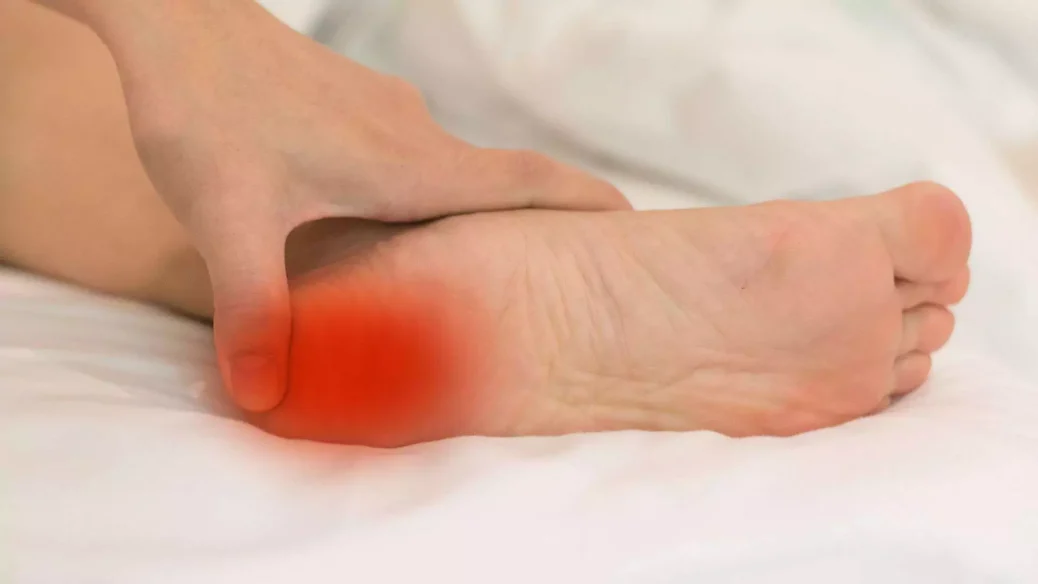


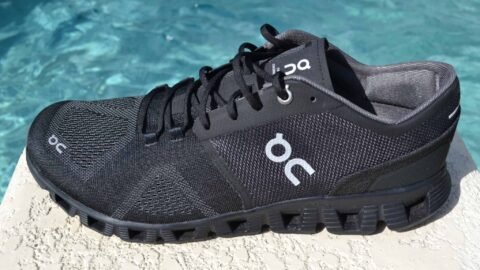
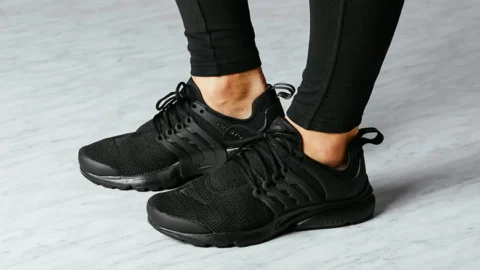




[…] Nurses with flat feet often experience discomfort and stress on their feet due to long hours of standing and walking. Flat feet lack a natural arch, which can lead to overpronation and an uneven distribution of body weight. This increases the risk of foot pain and other related conditions such as plantar fasciitis. […]
[…] A range of prices and designs cater to diverse needs and preferences, including those of nurses with specific foot conditions. […]
[…] which can prevent strain on the back. For those with specific needs, shoes compatible with orthotic insoles offer a personalized solution. Notably, the heel height of the shoe must be conducive to […]
[…] of models specifically designed to address the unique needs of nurses. Important factors like arch support, slip resistance, and fit are given special attention in these designs. With options available for […]
[…] it’s essential for maintaining good posture and preventing foot-related ailments such as plantar fasciitis. Hoka One One, renowned for their cushioned, stable designs, has become a popular brand among […]
[…] should be non-greasy and have ingredients that can help with hydration and repair. Insoles with cushioning and proper arch support are also significant, and they should match the nurse’s foot shape and shoe design. For […]
[…] to accommodate the natural shape and movement of the foot can help prevent conditions such as plantar fasciitis, bunions, and […]
[…] setting. With numerous options available, it’s important to consider personalized fit, ergonomic design, and the ability to withstand the rigors of long, often unpredictable hours typical in nursing […]